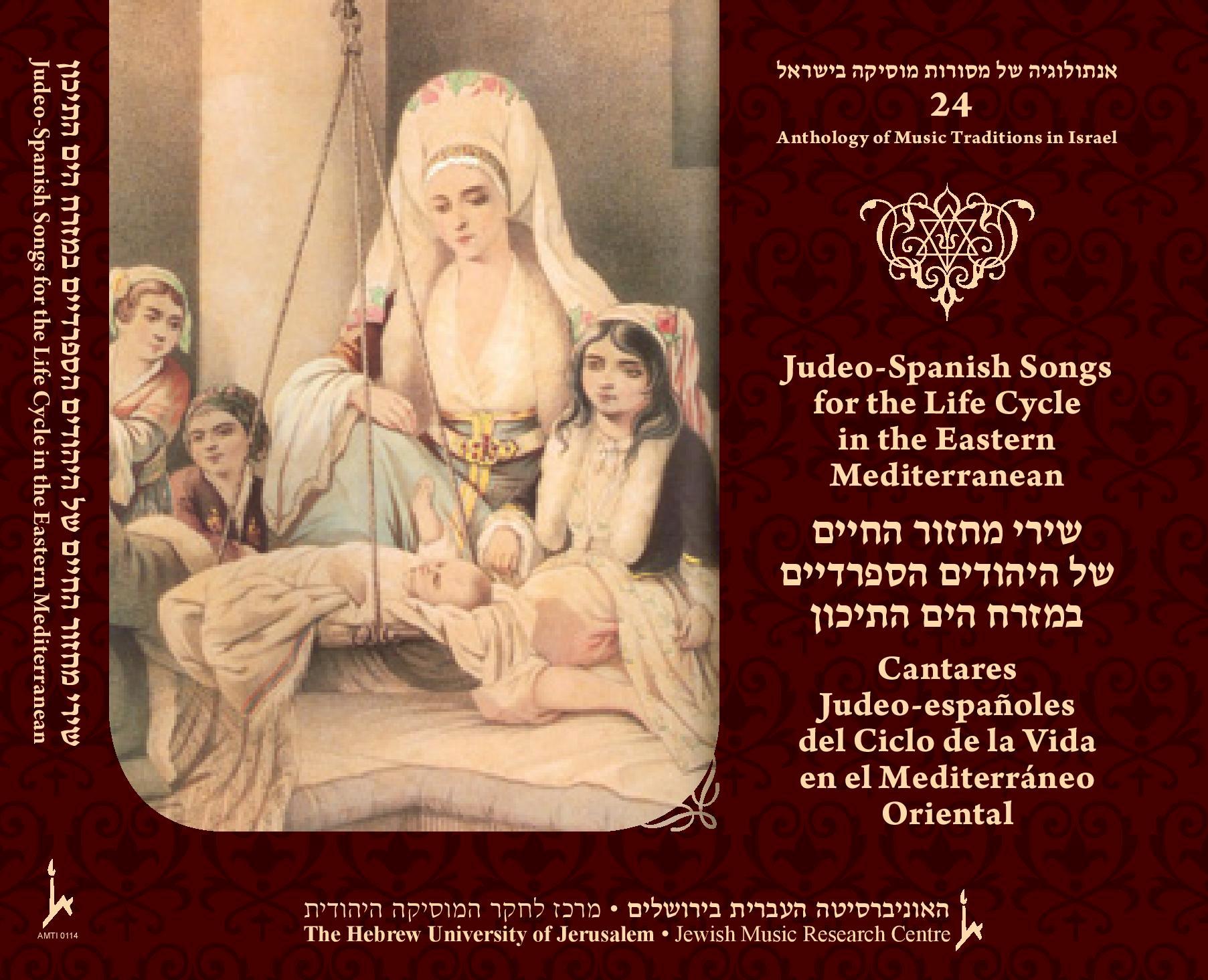מלכה שבתאי ולאה בסון בכר (בורסה)
2-7. El parto feliz
לפנינו שש גרסאות של ה-copla de parida המפורסמת ביותר. גרסה כמעט שלמה של השיר פורסמה על ידי בנימין בן-יוסף בספר השירים שלו, El buquieto de romanzas (איסטנבול, 1926). הגרסה הראשונה (תקליטור 1, מס' 2) קטועה, וכוללת רק שני בתים ופזמון. אביו של הרך הנולד בא ומביא בידו האחת דגים ובשנייה מחרוזת של דוקאטים (מטבעות). "יין לכולם! יחי אביו של היילוד! תחי אמו של התינוק אשר הביאה לעולם בן יפה שכזה, שפניו דומים לפרחים!" גרסאות אחרות (תקליטור 1, מס' 3, 7) מספרות על השמחה שבלידה לאחר תשעה חודשים קשים של היריון ועל לידתו של בן זכר במזל טוב. "ברוך השם שהגענו ליום הזה" אומר הפזמון. כשהמיילדת דוחקת ביולדת "המשיכי, המשיכי" היא צועקת "אלוהים, הצילני במהרה!" והאנשים סביבה עונים "אמן, אמן!" אביו של היילוד מגיע עם אורחיו ונושא בידיו בשר ודגים. "יחי אבי התינוק שהביא יין טוב, מתאבנים וממתקים". בגרסה אחת מוזכר שהכול הגיע מחנותו של אלמוזנינו, חנות מאפים מפורסמת בסלוניקי.
שתי גרסאות (תקליטור 1, מס' 4-5) פונות אל אם היילוד. בשיר מס' 4 שואלים אותה "מיהו זה שהבאת לעולם, הממלא את הבית באור?" הפזמון קורא: "מי ייתן ויהיה היילוד סימן טוב, אורן ירוק ומשגשג! יחי היילוד וגם אביו". בפנותו אל אם היילוד אומר הטקסט: "הסבל שסבלת במשך תשעה חודשי היריון נועד להביא לעולם בן שפניו כפני הירח". אביו של התינוק ניגש אל מיטת אשתו והיא מתלוננת על כך שלא אכלה. אבי התינוק זועם על כל הנוכחים בבית: "הביאו לה מיד עוף ממולא לאכול! הסבי פניך אל השולחנות, אם היילוד, ותראי כיצד אוכלות הבנות היפות ומברכות אישה את רעותה". בגרסה השנייה (מס' 5) מושמעות ברכות לאם התינוק (la parida), לאביו (el parido) ולתינוק עצמו. האם אוכלת את העוף ומחביאה את העצמות לד המיטה כהגנה מפני עין הרע. כשהיא מפנה את פניה אל המטבח, היא רואה את הטבחיות העסוקות בהכנת הארוחה לחגיגת ברית המילה.





